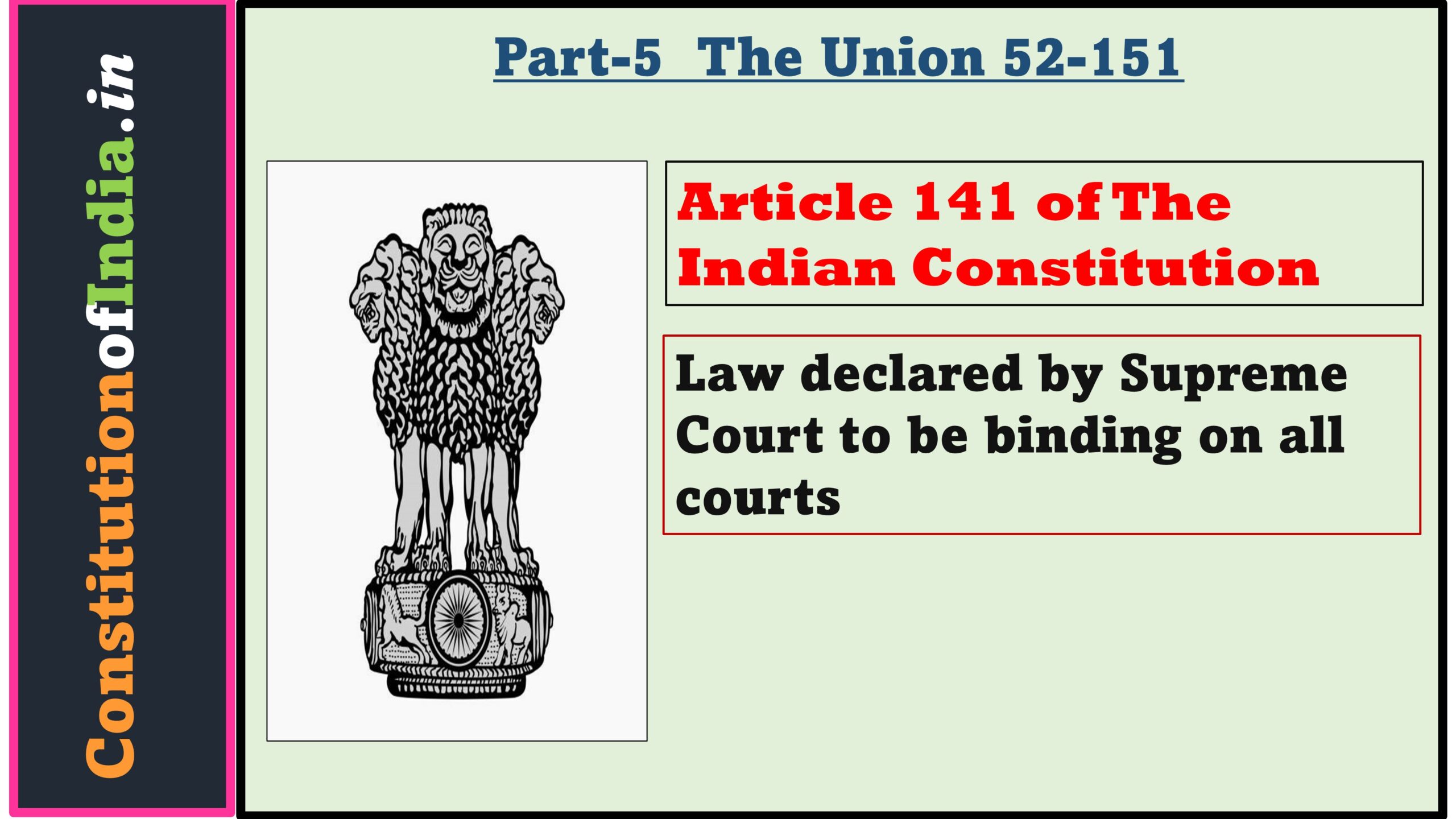Article 141 of Indian Constitution: Law declared by Supreme Court to be binding on all courts.

Article 141 Law declared by Supreme Court to be binding on all courts – Constitution Of India
The law declared by the Supreme Court shall be binding on all courts within the territory of India.
Article 141 – Constitution of India
“Law declared by Supreme Court to be binding on all courts”
Text:
“The law declared by the Supreme Court shall be binding on all courts within the territory of India.”
✅ Summary:
Article 141 establishes the doctrine of precedent in the Indian legal system. It mandates that the decisions (i.e., interpretations of law) made by the Supreme Court are binding on all lower courts across India.
📌 Key Points:
- The “law declared” refers to the ratio decidendi (legal principle or reasoning) of a Supreme Court judgment, not just the final order or individual facts.
- It ensures uniformity and consistency in the application of the law throughout the country.
- Lower courts (High Courts, District Courts, Tribunals, etc.) must follow Supreme Court rulings even if they disagree with the interpretation.
- This Article strengthens the Supreme Court’s authority as the final interpreter of the Constitution and laws of India.
⚖️ Important Case Law:
- Union of India v. Raghubir Singh (1989):
- Affirmed that the law declared by the Supreme Court is binding on all courts under Article 141.
- Dhanraj v. State of Punjab (1976):
- Clarified that obiter dicta (non-binding observations) are not law under Article 141.
- Bengal Immunity Co. v. State of Bihar (1955):
- Held that only the legal principle in a decision is binding.